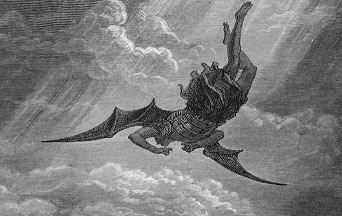
Addressing high school students like me, the group, Young Writers started a nationwide writing contest titled “Twisted Tales: The Words of the Wicked. ” The name gives people a good idea about the subject matter.
The contest asks young writers aged ten to eighteen to write short stories from the perspective of a villain or someone that sympathizes with him. Students are permitted to write about all sorts of villains, from classic villainous fictional characters to those in the real world. It can even deal with natural disasters and animals. The definition of a villain is “an evil person.” Even so, the contest poses a question: Are the villains really that bad?
By asking that question, the contest makes the term “villain” and “bad” ambiguous. A topic asks students to write about is a villain’s motivation to justify evil deeds. Even if people consider a villain’s hardships and sufferings, it does not excuse any later wrongdoings.
For instance, Adolf Hitler had a traumatic childhood. Living a hard life full of suffering, pain and injustice does not render later evil actions just. This kind of thinking leads to even more treacherous ideas.
The contest suggests putting a twist on “the classic narrative of good vs. evil.” This phrase suggests good could actually be evil and vice versa. Other perspectives for the essay contest include what the villain does for leisure or what the villain does after the end of a tale. However, the goal is the same: to get young writers like me to relate to and sympathize with villains.
 Learn All About the Prophecies of Our Lady of Good Success About Our Times
Learn All About the Prophecies of Our Lady of Good Success About Our Times
After all, it is not uncommon for writers to insert themselves into the lives of story characters. In this case, students may start to relate to villains and thus gain a thwarted sense of morality. Students will dream about and later do some of the villain’s acts. They will then justify those acts seen from a different light.
What are the possible outcomes of this contest? School shootings and other bad happenings may become more common. Many schools already have gangs and fighting within the student body. This contest adds fuel to the fire. With the lack of charity and hostility in some school environments, students using weapons such as firearms to take out their anger will become more common because of these dangerous ideas.
This contest seems to present no harm. It seems to offer a way for young students to become good at writing about characters and perspectives. But on closer inspection, the villainous contest’s real goal is to make younger persons sympathize with villainous characters, which will then influence their thoughts. This tendential process will eventually lead to a widespread acceptance of evil actions. This is not good in any way. People become what they admire. Villains should never be admired.

